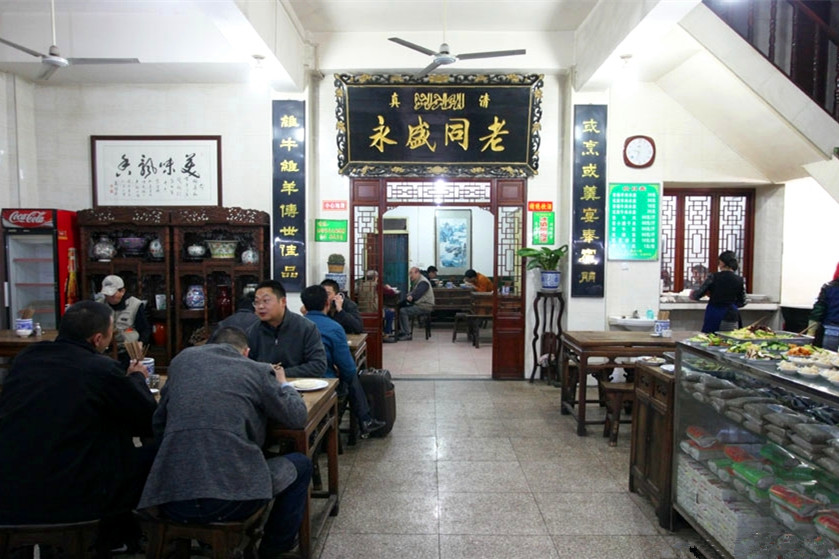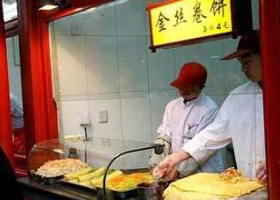
Water basin mutton uses mutton and prepared soup as its main material. Other secondary materials include vermicelli, garlic sprouts, and coriander. In Shaanxi Province, people are most likely to eat the dish with baked buns or hard flour pancakes.
In the heyday of the Tang Dynasty, Chang'an was a perfect market for trade in cattle and sheep thanks to its location in the central region of the Central Plains and its proximity to the pastoral areas.
Some street names in Xi'an that trace their origins to ancient times, like Dongyangshi Alley (or East Sheep Market Alley), Xiyangshi Alley (or West Sheep Market Alley), and Niushi Alley (or Cattle Market Alley), all attest to that fact of Chang'an. The flourishing trade in cattle and sheep there has led to many folk delicacies related to cattle and sheep, including Water Basin Mutton.
We Recommend:

|

|

|
| 10 Beijing streets worth visiting |
Picturesque scenery of Bashang Prairie |
Indian master shows aerial yoga in Taiyuan |
